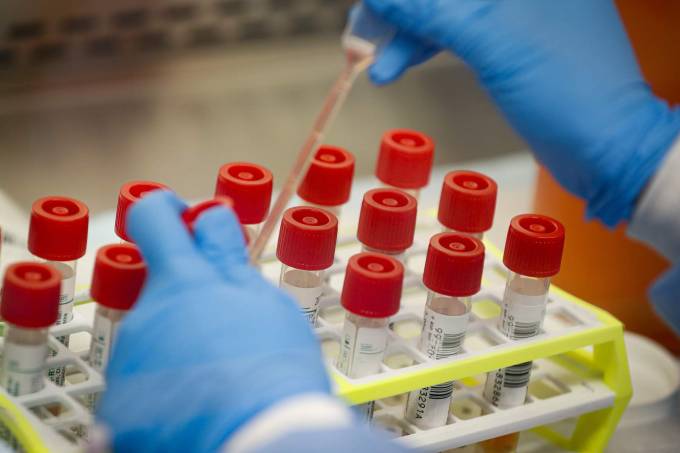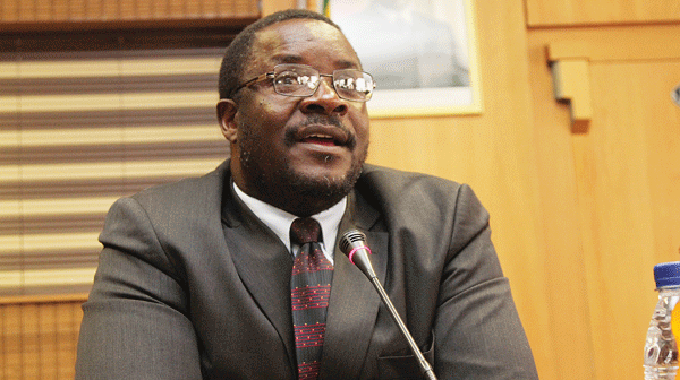Gono slams Magaisa for ignorance

Herald Reporter
The Farm Mechanisation Programme of 2007 was above board, was funded from Reserve Bank of Zimbabwe funds with beneficiaries never expected to repay the sums, and taxpayers were not saddled with the bill since the $200 million was never part of the RBZ debts assumed by the State, says the former RBZ Governor Dr Gideon Gono.
Replying to a comment by British-based commentator Dr Alex Magaisa on his Big Saturday Read site, Dr Gono said that RBZ Debt Assumption Act of 2015 transferred $1.3 billion of RBZ debts to the Government, but there was no reference to a Farm Mechanisation Programme debt there, let alone a figure of $200 million.
Of the debt taken over, $309.9 million was from 1976-7 to 2001, before Dr Gono became Governor, and $962.1 million dated from the 10 years he was in office.
Of that almost $1 billion, $578.9 million was for fuel and electricity, $294.5 million for maize, fertilisers, chemicals and seed, $24.3 million was for cars for ministries and special programmes like Bacossi, $26.5 million was used for mineral audits by an international firm of experts and $7.5m had been borrowed to meet mandatory retrenchment packages in 2011/12.
Tobacco farmers accrued support stood at $22.5 million and health and interest claims stood at $7.9 million. These figures, noted Dr Gono, are listed in the statute law of Zimbabwe as part of the Act.
Farm mechanisation was neither part of any of the amounts mentioned nor did it feature as a take-over debt by the State in terms of that Act, and Dr Gono wondered where the conclusion that the taxpayer was or has been saddled with a $200m debt through the RBZ Debt Assumption Act came from.
He had already retired and left the bank in 2013 when the Debt Assumption Bill was crafted and gazetted in 2014 and subsequently passed into law in 2015.
“I cannot therefore be accused of having had a hand in its crafting or makeup two years after retiring.”
But as he was governor in charge of the RBZ-driven Government Farm Mechanisation Programme he could speak authoritatively on the subject.
“This pioneering programme had, like any other new initiative, its own challenges here and there but overall, the programme ran smoothly and was above board.”
Dr Gono noted that Governments did intervene in all cases where there was need and he referred to the quasi-fiscal operation in October and November 2009 to spend $1,5 million on a Highlands home for the then Prime Minister Dr Morgan Tsvangirai “to settle a dispute over the residence status of Dr Tsvangirai which had become one of the sticky issues and had led to an MDC-T disengagement from Government of National Unity”.
“Approval to pay for the house was given to me on November 13, 2009, and the State acquired this ‘debt’ and eventually wrote it off. Both taxpayers belonging and not belonging to MDC-T have had to foot that bill. I don’t call it a burden when you weigh what could have negatively happened to our economy and Government had the then PM remained outside Government and what eventually, then happened after the MDC-T returned to the table.”
Dr Gono noted that at this time Dr Magaisa was “working in the then PM’s Office as advisor or in some other capacity”.
Among the many programmes run from the RBZ was “The Health Sectors Skills Retention Scheme, an RBZ-initiative meant to retain our doctors and health workers (who were about to leave the country for greener pastures leaving their mothers, fathers, brothers and sisters without adequate attention) saw us ‘give’ to individual doctors cars which till today have never been paid for, neither has Government asked them to pay. That intervention was not a loan. Not all the doctors received the cars as the programme had to stop after GNU but the initial intention was to give every doctor and health worker means to get to work without having to ask them to pay for it.”
Stressing the similarity, Dr Gono said: “Like the Farm Mechanisation, this medical sector intervention was made public and the allocations were done following a particular criterion that was specific to the health sector and without regard to gender, political affiliation, religious belonging or ethnicity.”
The Government of National Unity concurred that the farmers who were helped with mechanisation did not have to pay back.
“When in 2010 the RBZ sought guidance on the matter, there was change of heart (that farmers had to repay) by the inclusive government who, through Cabinet minister Dr Joseph Made, advised, initially verbally but subsequently in writing, that Government (as in inclusive) had decided in 2012 to include the programme as part of its national mechanisation and irrigation and that was end of story.”
None of the headings in the Assumption of Debt Act refer to Farm Mechanisation debts assumed by the State and none refers to the former PM’s residence payment, “all of which were absorbed internally from accumulated revenues, some of which was of an exchange rate nature and seigniorage”, said Dr Gono.
“It will be recalled by those who care to remember that sometime in 2012-13 the same inclusive Government decided to assume and write off the Zesa electricity and water bills of citizens across the board regardless of name, position, political affiliation, gender, ethnicity or financial standing in society. I guess local authorities and ZESA will now be required by BSR (Big Saturday Read, the blog by Dr Alex Magaisa) to publish the names of all beneficiaries of that programme so that they pay back what they derived by way of that benefit. I am sure BSR will lead in that process.”
Dr Gono thought Parliament should “repeal those sections of the various laws that criminalise disclosures of beneficiaries of public programmes in the interests of good governance, transparency and promotion of sound economic management to avoid reliance on leaks and distortions of the nature we are witnessing”.
Dr Gono noted that among the State interventions were disaster recovery.
“Zimbabwe has, in drought years often written off farmers’ loans and equally in disaster years, certain areas of the country and individuals in that area have had their houses and infrastructure built for them and that cost written off or carried by the State without regard to one’s standing in society. You just needed to fit the criteria and you are a beneficiary.”
He felt that beneficiaries of programmes who were in opposition parties should also be mentioned.
“Brother Magaisa and company, talk of transparency and good governance that comes with publication of information; this is positive debate but then people should not be selective in their dissemination of information as seems to have been the case in the BSR. Why were prominent figures in the MDC-A and MDC-T not mentioned?”
“Surely if we are talking about benefiting from State resources which were not paid back and we want to name and shame, I have no problem giving out names of all chiefs, headman and rural area people who benefited from the Mechanisation Programme for Brother Magaya and company to institute recovery proceedings, including from about 1,5 million households of 6 persons or more each, who benefited from the Bacossi Food Hamper Programme and Honourables who benefited from motor vehicles, generators, funeral assistances, forex travel and hotel subsidies.
“Many of these beneficiaries are still alive and some are retired from Government while some are still very active in various political circles, crying the loudest with the twitter handles but forgetting their beneficial associations with either the Mugabe dispensation, the GNU or current dispensation. It’s gonna be a long journey but records don’t disappear just because one has retired.”
Dr Gono noted that many ministries, universities and other State institutions received cars through the RBZ, that many farmers received seed and chemicals, and that “some in the Labour Movement could also be having some repayments to make and I’m sure the Minister of Finance will never need a supplementary budget again for the next decade if everyone pays up.”
The RBZ helped all local authorities and all media, both public sector and private sector, along with wide swathes of industry with raw materials and inputs.
“Subsidies are a form of State intervention on behalf of the people. It is unfair to want to be selective in our analysis of what the State ends up taking over as costs to the taxpayer. Some costs can be attributed directly to particular points of entry even though they benefit everyone, including those who unwittingly criticise and see evil in them. The records are there and we must not be lazy to carry out a fish-bone analysis of these interventions and see who in the end was the beneficiary of what and get them to pay so that proponents of BSR can be happy.
“But who will sponsor the exercise? It cannot be the State but he who makes the accusation of impropriety: he should go all the way, lest we question the motives of the article, it’s source, sincerity and timing.”
Outlining the mechanisation intervention Dr Gono said in 2007-8, the food import bill was huge and the idea of a 3-year roll-out programme to mechanise farmers became a priority.
“We had a clear, productivity-related selection criteria based on a record of past performance on one’s farm and no other criteria. It was not region or political affiliation neither was it a criterion that looked at one’s standing in society. Every beneficiary was referred to GMB for record of past grain delivery.”
The programme ended in mid-2008, two and half years early, which later generated a lot of jealousy as not everyone supposed to benefit did benefit.
“We gave out animal drawn implements to rural farmers worth about $300 million and wrote-off that expenditure against the bank’s income and spent about $198 million on imported mechanised farm equipment. We did the same thing and fully expensed that outlay.”
Combine harvesters, some costing upwards of $150 000 apiece, were the most expensive items and one complete set plus a big tractor could cost $300 000 to $350 000.











Comments